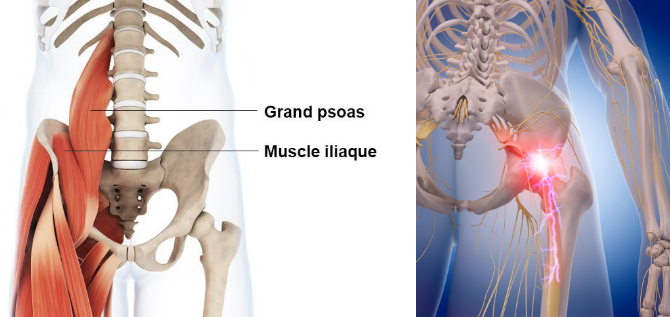
The Psoas, A massive Muscle
The psoas is a massive muscle that greatly influences the body. It is also the only muscle to connect the spine and legs. It is sometimes called the "muscle of the soul" because it has a special relationship with the skeletal system, the diaphragm, the organs, and the nervous system. The psoas is also intimately linked to our reactions to stressful events, which makes it a key element in certain therapeutic approaches to the body.
Dysfunctions
Psoas dysfunction can contribute to various physical conditions including:
· Pelvic floor dysfunction;
· lower back, hip, knee, and sacroiliac joint pain;
· unevenness in the length of the legs;
· menstrual pain;
· digestion problems; as well as
· emotional imbalances.
In fact, an overly contracted psoas can create hyperlordosis or left-right imbalance and affect the alignment of the whole body. Moreover, when we mention a dysfunction of this muscle, we often refer to the muscle that is too contracted. Note that we actually have two psoae (one on each side). It can, therefore, be contracted too much on one side, creating an imbalance that can affect the neck. It can also be too contracted on both sides at the same time, which could have the effect of a very arched lower back (hyperlordosis).
An accident, traumatic experiences, or even habits (like a simple sitting posture, for example) are all factors that can lead to the overly tense psoas. If the psoas is too tight, it should be released before stretching.

